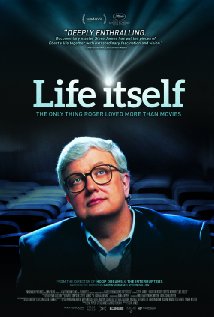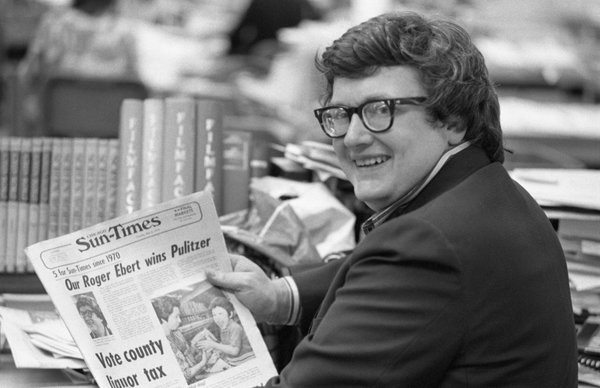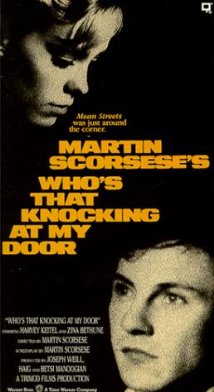As this nerd’s tribute to another nerd, I left my desk this morning to ride Bus 352 to the Chauvel theatre in Paddington to see Roger Ebert in ‘Life Itself.’

A movie is a machine for transmitting empathy by telling the stories of other people, of other times, and of other places … and there we find something of ourselves and we experience it in the silent company of hundreds of others. No, we are not alone. Call that an Ebertism. I am sure he said something like that but I could not track it down.
The movie chronicles Ebert from cradle to grave, the small town mid-western only child who made his way in the big wide world. At the University of Illinois he worked his way up to editor the ‘Illini Daily’ where he rose to the occasion in November 1963. (By the way, I loved seeing that two-storey printing presses, the rumble of which is heard streets away.)
The essential loneliness of the man is inescapable in his earlier years, here portrayed as his salad days, the life of the party with no home and no one to go home to, drinking all night and eating like a pig, and he poured himself into his typewriter.
That Ebert was awarded a Pulitzer Prize for his movie reviews is noted and mentioned a couple of times, but nothing is said about why he got it. A quotation from the citation would have been valuable. It was remarkable that a film reviewer would receive such an accolade. Still is.

One of the major themes has to be the odd coupling with Gene Siskel. They were from different worlds, and found little in common. If they bickered on screen, they positively reviled one another off it. Though even some of that seemed forced yet it was amusing to watch the out-takes, boys being bad boys because it was expected of them.
Film literati never accepted Ebert and hated the influence he gained with audiences and indeed directors and studios. His most egregious failing was that he did not write in the inscrutable, closed, self-referential way beloved of Cultural Studies. I think of all those films made for other film directors lovingly reviewed in the ‘The Story of Film: an Odyssey’ (2011). (A documentary film reviewed elsewhere on the this blog.) Ebert cut through all of that.
Whenever I see a movie I like, I check the Ebert archive in the hope that he wrote about it, putting into words some of the things that occurred to me and, more importantly, putting into words things that did not occur to me at all.
This is the man who recognised Martin Scorsese’s genius in ‘I Call First’ (1967), who searched out and encouraged independent film makers like Errol Morris, reviewed documentaries as if they were feature film when other reviewers ignored documentaries, and made subtitled movies acceptable to an ever larger audience. Credit where credit it due.
By the way ‘I Call First’ was retitled ‘Who is that knocking at my door’ when it got a wide release thanks to Ebert’s push. His battles to review independent films with little or no theatrical release is more than enough to make the case that he expanded the realm, likewise, his thinly disguised efforts to review some obscure film three times to give it exposure. Siskel played a part in all of this, too, but is not given credit for it in these 120 minutes. No time, I guess. See my comment on length at the end.

Among the many likeable moments in the documentary are these:
Martin Scorsese’s perplexed reaction, even years later, to a bad review from Ebert was delicious. Not only did Ebert start Scorsese’s career but he resurrected it once, but even so he did not like ‘The Color of Money’ and said so.
The continental tensions with the rulers of popular culture in Los Angeles and New York City who ignored those two guys living in a movie house in Chicago for years and years. (I always thought they lived there anyway.)
His abiding loyalty to the working class ‘Chicago Sun Times’ and its readership even under the baleful influence of Rupert Murdoch’s ownership was staunch. It gave him his start and he repaid that everyday.
Werner Herzog’s description, delivered in the thick overcoat of a German accent, of Ebert as a comrade wounded in action who soldiers on was charming, grim, and exact.
Richard Corliss of ‘Time’ magazine eating the words of some of his early attacks on Ebert’s approach to reviewing. Too down market for the young Corliss. An older and wiser Corliss sees a bigger picture now, or having made his career, Corliss perhaps now has no need any longer to attract attention by attacking an established figure.
The recitation of the last page of ‘The Great Gatsby,’ ‘Most of the shore places were now closed…[get it and read it for yourself].’ A dirge to be sure, but ‘Gatsby believed in the green light.’ So did Roger Ebert. Find and follow the green light….
Art mirrors life but it need not reproduce it, as Ebert said more than once. There was about 30 minutes too much of life in the film for this viewer, the grieving wife, the loving grandchildren, the lingering camera shot to wring every last drop of emotion from the take, enough already!
I enjoyed leaving my well beaten paths for a while today, but I won’t make a habit of it! I have footnotes to go and chapters to write before I play hookey again.
Skip to content
